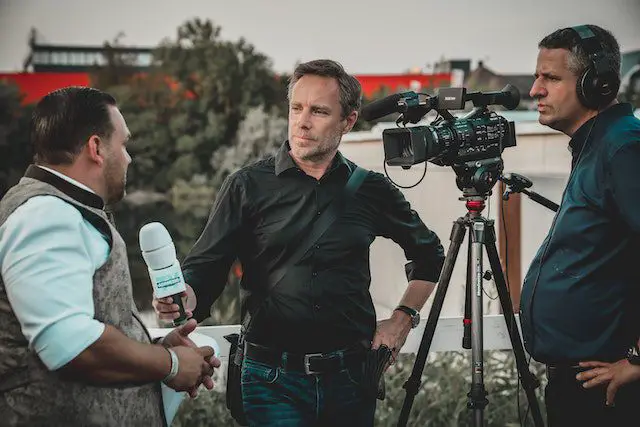Scholarship details
The Richard J. Margolis Award is presented once a year to an up-and-coming journalist or essayist whose nonfiction work illuminates themes of social justice while also displaying warmth, humor, and insight.
Richard J. Margolis (1929-1991) was a well-known journalist, writer, and poet. He was known for giving eloquent voice to those whose voices are rarely heard, such as the rural poor, migrant farmworkers, Native Americans, and aging individuals. This award honors the life of Richard J. Margolis (1929-1991). He was also the author of a number of works geared toward youngsters.
About the Scholarship Provider:
Richard J. “Dick” Margolis was a brilliant author who could distill difficult topics to their essence while yet giving them a personable, sympathetic tone. He emphasized anecdotes, allowing us to better understand the impact that broad political and policy concerns have on specific people. Through his writing, he aimed to get people and politicians to pay attention to the plight of the marginalized by combining comedy, eloquence, wit, and logic.
Dick’s stories had a lyrical quality to them, complete with a unique rhythm and style. He had an incredible breadth and depth of knowledge throughout the disciplines of history, literature, the arts, and the sciences. By twisting words around in novel ways, he made subtleties clear, provided a voice to the voiceless, and mocked the powerful, seemingly without losing his sense of humor. The range of his work was impressive. Dick was a man of many talents; he worked as a freelance journalist, poet, children’s author, teacher, editor, and political activist. In addition to being a respected leader, he was a committed family man and parent.
Dick was a freelance journalist who covered issues such as inequality in education, racism, urban and rural poverty, Native American and migrant farmworker issues, and the plight of the elderly. The New York Times, The Washington Post, The Nation, The New Republic, Smithsonian, Working Papers, The Boston Globe, The Christian Science Monitor, Change, Harper’s, Life, Redbook, and Next have all published articles he wrote. He contributed columns to The New Leader, a national magazine that has published some of America’s most celebrated progressive authors and artists, on a regular basis from 1968 until 1991.
In addition to his book reviews, Dick frequently contributed opinion pieces to prestigious newspapers including The New York Times and The Washington Post. Reports, pamphlets, and monographs commissioned by government agencies, private foundations, and non-profits received Dick’s painstaking study. The Basin Electric Cooperatives, Bureau of Indian Affairs, Carnegie Corporation, U.S. Civil Rights Commission, former Community Services Administration, U.S. Department of Agriculture, Edna McDowell Clark Foundation, Ford Foundation, U.S. Department of Housing and Urban Development, National Committee Against Discrimination in Housing, Phelps-Stokes, Postal Rate Commission, Rockefeller Brothers Fund, and Rosebud Sioux Tribe were all among these.
Dick has written several books, including Risking Old Age in America (Westview Press, 1990), which examines the difficulties faced by low-income seniors in the United States, as well as six books for children and three collections of poetry, one of which, Secrets of a Small Brother (Macmillan, 1984), was the recipient of the Christopher Award in the “Books for Young People” category. While studying journalism at the University of Minnesota, Dick began his career as an editor. In 1956, Dick and his wife Diane Rothbard Margolis bought the Brooklyn Heights Press after relocating to New York City when he completed his master’s degree. After earning the George Polk Memorial Award for Community Journalism in 1959, Dick served as editor and publisher for another four years. In addition, he was the literary editor of Change from 1973 to 1980, an editor at Foundation News from 1983 to 1988, a member of the editorial board of Human Services in the Rural Environment from 1979 to 1991, an editor at Rural Electrification, the editor-in-chief of ruralamerica from 1977 to 1979, the editor-in-chief of The Cooperator from 1972 to 1973, and the senior editor of Working Papers in 1981.
Dick used his knowledge and skills to teach at various institutions, including the State University of New York at Purchase (1974–1977) and the University of Connecticut (1970), as well as at Harvard University (1981), where he taught “Power and Conflict in Rural America” and held a fellowship at the Kennedy Institute of Politics.
Dick’s writings reflect his activism, but he also participated in politics on other fronts. Between the years of 1969 and 1975, he served as the chairman of the Rural Housing Alliance, and in the 1970s, he helped establish Rural America Inc., a nonprofit advocacy group. His contributions to Rural America included chairing the group in 1976 and making its monthly tabloid, ruralamerica, into a widely read publication across the country. He was in high demand as a speaker at many national and regional events thanks to his extensive knowledge and witty observations.
SeNSS is one of only 14 Doctoral Training Partnerships in the United Kingdom that is sponsored by the ESRC, and they will be offering a handful of fully-funded ESRC doctoral studentships beginning in September 2023. SeNSS is one of the only 14 Doctoral Training Partnerships in the United Kingdom that is sponsored by the ESRC.
Scholarship Sponsor(s): Richard J. Margolis Award
Scholarship Country: United States
Scholarship Worth: $5,000
Study Level: Undergraduate
Nationality: International Students
Scholarship Offer:
- The winner of this award will earn $5,000 in addition to a one-month stay at Blue Mountain Center, which is a well-known writers’ and artists’ colony located in the Adirondack Mountains of New York (the runner-up will receive $1,000 but will not receive a residency).
The Gustafsson & Skrondal Visiting Scholarship is administered by the University of Oslo’s Centre for Educational Measurement (CEMO). As part of the visiting scholar program, CEMO and the University of Oslo host a number of young researchers from Norway and elsewhere each year.
Eligibility for Scholarship.
- A young journalist or essayist whose nonfiction work sheds light on concerns of social justice and combines warmth, humor, and wisdom is being called a “new journalist or essayist.”
- Please provide the following items either as individual documents or integrated into one or more documents in accordance with the following instructions:
- A cover letter expressing your interest in the award as well as your qualifications to receive it;
- A project overview of your present and anticipated work, as well as an explanation of what you plan to focus on during your time in residence at Blue Mountain;
- A condensed account of the individual’s life; and
- Two to three samples of your work, either published or unpublished, that fit the following criteria and are in either print or electronic format:
- Only samples of nonfiction will be accepted (no poetry or fiction);
- 30 pages limit; and
- at least one of the samples being material that is not a memoir.
- All submissions should be forwarded to [email protected] as PDF files (this format is preferable!). It would be helpful if you could name all of your files beginning with your last name (for example, Smith-cover letter+description.pdf, Smith-writing sample.pdf, etc.).
Nationality
The Richard J. Margolis Award 2023 for Nonfiction Writers of Social Justice is open to all International Students
If a student enrolls in one of the degree programs offered by SOAS University of London, they may be eligible to receive a fee waiver award in the amount of £5,000. This award is available to students who are interested in receiving a degree from SOAS University of London.
Application Procedure
- The name of the recipient of the annual Richard J. Margolis Award is revealed in the month of November, and the residency at Blue Mountain Lake takes place in either the summer or the fall of the following year.
- Applications are accepted at any time during the year; however, they must be postmarked no later than July 1 in order to be considered for the award given in the current year. Any applications that are submitted after this date will not be evaluated for the award until the next calendar year.
Application Deadline
The application deadline for the Richard J. Margolis Award 2023 for Nonfiction Writers of Social Justice is July 1, 2023.





















